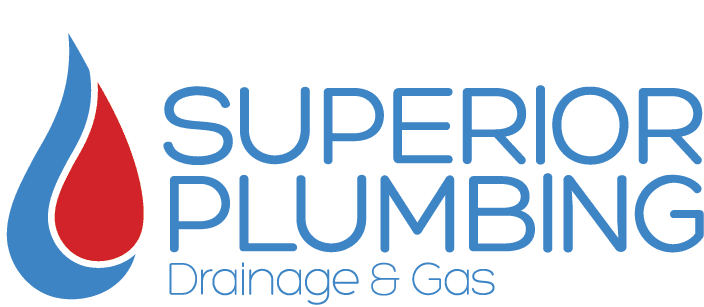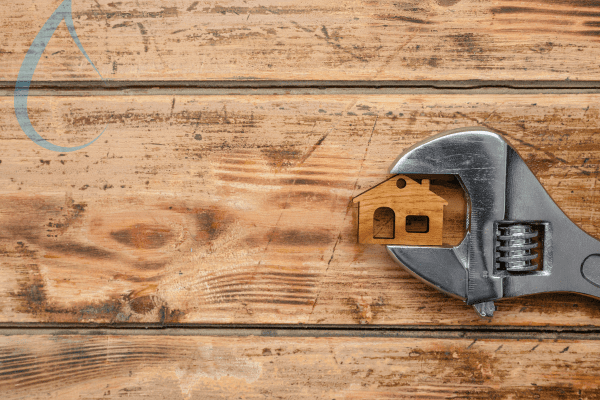Ironically, when it comes to plumbing maintenance, you do not want to just go with the flow. In commercial real estate, maintaining your property’s infrastructure is vital to ensuring smooth operations. Here at Superior Plumbing & Gas, we know Regular plumbing inspections prevent costly repairs and downtime and contribute to a property’s overall health, safety, and longevity.
Maintaining Your Commercial Plumbing Systems
First things first, what do we mean when we say commercial plumbing systems? A commercial plumbing system refers to the network of pipes, fixtures, and appliances installed in commercial buildings to facilitate water distribution and waste removal.
Unlike residential plumbing systems, which serve individual households, commercial plumbing systems are designed to accommodate the higher demands of businesses, institutions, and large-scale facilities. If you want to keep employees and customers happy (and you do), it’s important to keep these systems running well. One of the best ways of doing this is to check that everything is okay regularly. Easy enough, right?
Let’s explore commercial plumbing systems, the problems they can create, and how routine plumbing inspections can benefit your business.
The Systems
Key components of a commercial plumbing system typically include:
- Water Supply System: This comprises a network of pipes that deliver potable water from the municipal water supply or on-site well to various points of use within the building.
- Drainage and Waste System: This system removes wastewater from the building and transports it to the municipal sewer system or on-site septic tank. It consists of drain pipes, vent pipes, sewer lines, and drainage fixtures.
- Fixtures and Appliances: Commercial plumbing systems incorporate a wide range of fixtures and appliances. These may include sinks, faucets, toilets, urinals, showers, dishwashers, water heaters, boilers, and special equipment.
- Backflow Prevention Devices: Commercial plumbing systems often include backflow prevention devices to protect the potable water supply from contamination. These devices prevent the reverse flow of contaminated water into the clean water supply.
- Water Heating and Distribution: Water heating systems, such as boilers, water heaters, or tankless water heaters, are integrated into the plumbing system to provide hot water on demand.
- Pressure Regulation and Control: Commercial plumbing systems often require pressure regulation to ensure consistent water flow and prevent damage to plumbing components.
- Grease Interceptors and Oil Separators: These devices capture grease, oils, and solids to prevent them from entering the drainage system and causing blockages or environmental contamination.
The Problems
During plumbing inspections, several common issues are frequently identified, including:
- Leaks: Leaks are one of the most common plumbing problems found during inspections. Even small leaks can lead to significant water wastage and property damage if left unaddressed.
- Clogs: Another prevalent issue is clogged drains and pipes. The buildup of debris, grease, hair, or mineral deposits can restrict water flow, leading to slow drains, backups, or overflowing fixtures.
- Corrosion: Over time, pipes and fixtures may corrode, especially in older plumbing systems or those exposed to harsh conditions. If not addressed promptly, corrosion can weaken pipes, leading to leaks, reduced water quality, and eventual failure.
.
- Faulty Fixtures: Plumbing fixtures, such as faucets, toilets, and showerheads, can develop various issues over time. These may include dripping faucets, running toilets, or worn-out seals.
- Water Pressure Problems: Low water pressure can indicate underlying issues such as leaks, clogs, or problems with the water supply line. Conversely, high water pressure can stress plumbing components and lead to premature wear and tear.
- Water Heater Issues: Water heaters may develop problems such as sediment buildup, corrosion, leaks, or malfunctioning heating elements. These issues can result in insufficient hot water, fluctuating temperatures, or complete failure.
- Backflow or Sewage Backup: Backflow occurs when contaminated water flows back into the potable water supply, posing health risks. Sewage backups can occur due to blockages or damage to sewer lines, leading to foul odours, overflowing drains, and potential property damage.
- Inefficient Fixtures: Outdated or inefficient plumbing fixtures, such as toilets, showerheads, and faucets, can waste water and increase utility costs. Upgrading to water-saving fixtures can improve efficiency and reduce water consumption.
- Improper Ventilation: Poor ventilation in plumbing systems can lead to unpleasant odours, slow drainage, or the buildup of harmful gases such as methane. Proper venting is essential for optimal plumbing system performance and indoor air quality.
- Code Violations: Inspections may uncover violations of building codes or regulations related to plumbing systems. These could include improper pipe installation or inadequate venting. Rectifying code violations is essential for ensuring compliance and maintaining a safe plumbing system.
The Benefits of Regular Inspections
Regular inspections of plumbing systems are crucial for several reasons:
Preventive Maintenance: Regular inspections allow for the early detection of potential issues before they escalate into major problems. Identifying and addressing small leaks, clogs, or worn-out components early on can prevent costly repairs and extensive damage to the property.
Ensuring Safety and Compliance: Plumbing systems must meet safety standards and building codes to ensure the well-being of occupants and compliance with regulations. Regular inspections help identify any safety hazards or code violations, allowing for timely corrections to maintain a safe environment for occupants.
Optimising Efficiency: Over time, plumbing systems may develop inefficiencies due to wear and tear, mineral deposits, or outdated components. Regular inspections enable property owners to identify and address these inefficiencies, such as leaks, faulty valves, or inefficient fixtures, thereby optimising the system’s performance and reducing water wastage.
Preserving Property Value: A well-maintained plumbing system contributes to a property’s overall value. Regular inspections and maintenance help prevent deterioration and damage to plumbing infrastructure, preserving the property’s value and attractiveness to tenants and investors.
Minimising Disruptions: Plumbing issues can disrupt business operations and inconvenience tenants. Regular inspections allow property owners to proactively address plumbing problems before they cause disruptions, minimising downtime and ensuring smooth operations for tenants.
Protecting Against Liability: Neglected plumbing systems can pose health and safety risks to occupants and visitors. Regular inspections help mitigate these risks by identifying and addressing potential hazards, reducing the likelihood of accidents or injuries that could lead to liability claims against the property owner.
Promoting Sustainability: Water conservation is increasingly essential for environmental and cost-saving reasons. Regular inspections help identify opportunities to improve water efficiency, such as repairing leaks, installing water-saving fixtures, or upgrading to more efficient appliances.
Superior Plumbing Inspections
With years of experience and expertise in commercial plumbing services, our skilled team at Superior Plumbing & Gas conducts comprehensive inspections, promptly identifying potential issues.
Investing in regular inspections and maintenance will safeguard your commercial real estate investments and prolong the lifespan of your plumbing systems. So, get in touch today!


